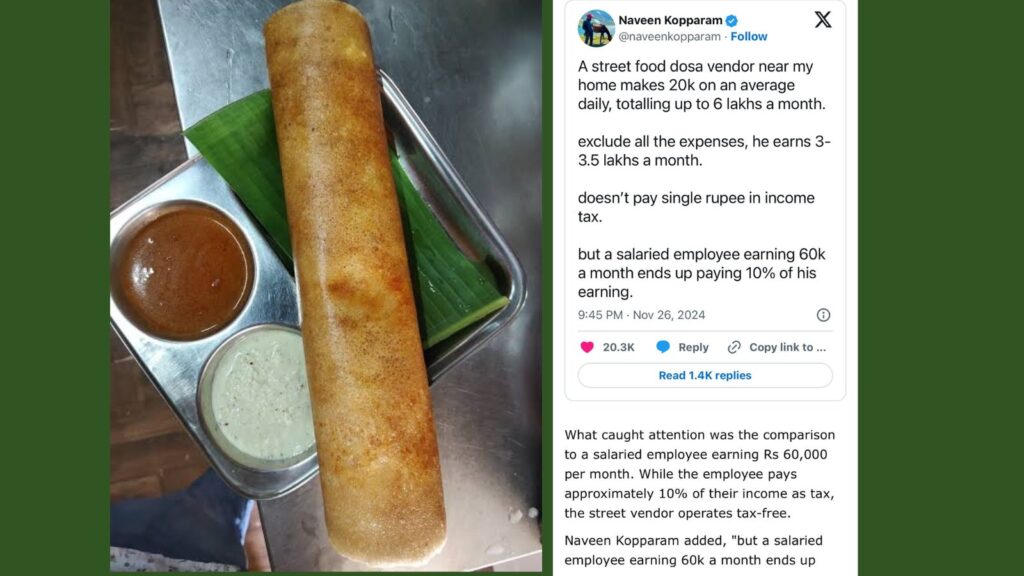
Dosa Vendor Earning ₹6 Lakh a Month Sparks Debate on Taxation and Income Inequality
A post about a dosa vendor earning ₹6 lakh a month, which is more than many white-collar professionals, is going viral on the internet.
The post highlights that the dosa vendor makes ₹20,000 a day, adding up to ₹6 lakh a month. After expenses, the vendor’s monthly profit is between ₹3 lakh and ₹3.5 lakh. However, the vendor doesn’t pay any taxes, which has sparked discussions about the tax responsibilities of self-employed people in India, especially compared to salaried employees who pay taxes.
So am in the News once again
— Naveen Kopparam (@naveenkopparam) November 28, 2024https://t.co/9dff0OjzLp@TimesNow. https://t.co/JhvbXCM3nk pic.twitter.com/BIYjshI5gG
Many netizens have raised questions about tax compliance for self-employed individuals in the informal sector. They pointed out that while salaried employees who earn ₹60,000 a month pay around 10% in taxes, vendors like the dosa seller often don’t contribute to tax revenue.
Some users pointed out that self-employed individuals, like street vendors, face challenges such as no insurance, difficulty getting loans, and lack of assured income, even if they pay more GST than some salaried workers. Others suggested that the government could easily track street vendors’ income through UPI data and could bring them into the tax system, but hasn’t done so yet.
The post has led to debates about income inequality and the fairness of tax obligations for different types of workers in India.






